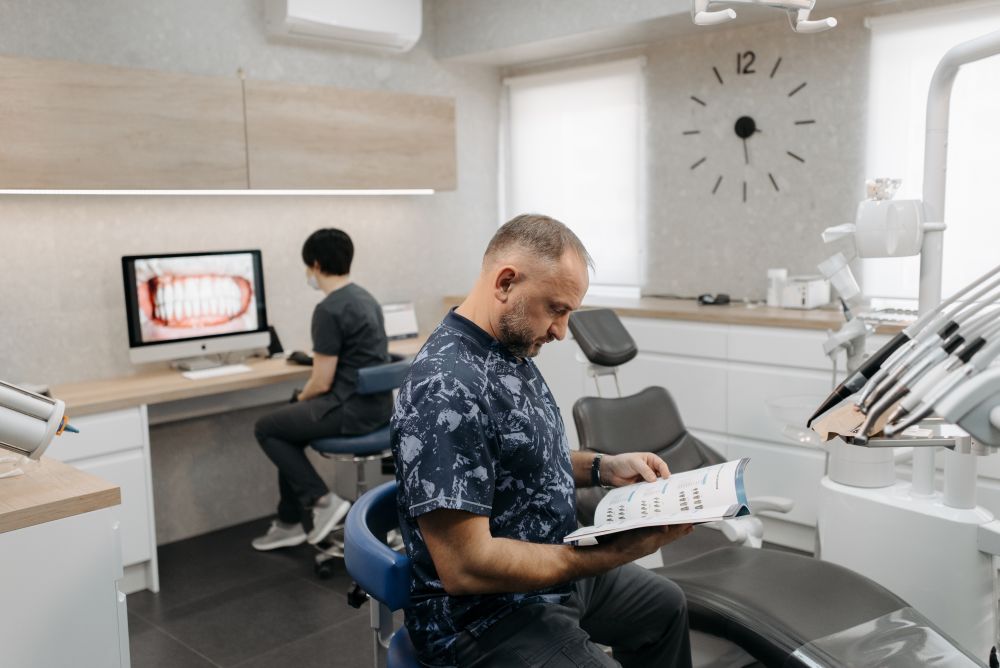How to minimize your dental care costs
It’s no secret that a trip to the dentist can be a costly outing. It makes sense that it woold be: Dentists are thoroughly trained health care professionals who provide a specialized service, and unfortunately, many Americans don’t have sufficient insurance to folly cover these vital services. It is estimated that nearly 25% of all Americans don’t have coverage for proper dental care. Therefore, many of them aren’t getting the treatment they require.
What’s your physician’s position?
A yearly checkup at your physician’s office usually consists of a complete body exam. They test your reflexes, monitor your pulse and blood pressure, run blood tests, and even take a urine sample. Along with all of these tests, they’ll ask you a whole host of questions about your diet, lifestyle, and mental health. During these physical exams, it seems like your doctor thoroughly examines your entire body, but how often do they look into your mouth and ask about your oral health?
Do you really need a healthy mouth to have a healthy body?
One thing that people often forget is that every part of your body is connected to another part. That means that the health of one area directly affects the health of another. The same is true for the health of your mouth. When you have infections in your teeth and gums, they can quickly spread to other areas of your body, leading to new infections and other health complications.
The Dental Medical Convergence Mission: Bridging the dental-medical divide
Most people don’t know the surprising connection between the health of the mouth and the health of the body. Mounting research points to a correlation between poor oral health and diseases including cardiovascular disease, diabetic complications, and dementia.
If these health problems could be prevented through proper oral care, then why aren’t more doctors and dentists talking about this important topic? That’s what Dr. Charles Reinertsen has been wondering for years. It’s why he founded The Dental Medical Convergence in 2021.
The guide you need to improve your oral health
You may not know this, but the health of your mouth can impact the health of your body. Your mouth is full of bacteria, and if you don't properly care for your teeth, the bad bacteria can enter your bloodstream and spread to other parts of your body. That’s why we created a guide with five questions you should ask your dentist. These questions can lead to eye-opening oral health information that could be connected to other health issues in your body.
Connecting the mouth and heart in February
Heart disease is the No. 1 killer of Americans. That’s why the entire month of February is devoted to raising awareness for cardiovascular health. Preventing heart disease can start with caring for your mouth.
Most Americans don’t realize oral health may play a part in heart health. Research shows that people with gum disease have two to three times the risk of having a heart attack, stroke, or other serious cardiovascular issue. The Dental Medical Convergence began with the intent of educating people on the role oral health plays in the rest of the body’s health, including cardiovascular health.
How gum disease affects overall health
Preventing heart disease can be as simple as cleaning your teeth every day. More and more research illustrates that periodontitis, also known as gum disease, is linked to many other health problems. That’s why The Dental Medical Convergence is raising awareness about the importance of oral health.
10 questions you should ask your dentist
Your mouth holds the key to your overall health. That’s why it’s so important to make the right dental choices. Here’s a list of questions you should ask at your next dental visit:
Managing Early Gum Disease
You may not have any pain or notice any symptoms but still be in the early stages of gum disease, also known as Periodontitis. This kind of disease starts with bacteria in your mouth and could lead to tooth loss and much worse: Heart attacks, strokes and diabetic complications. The good news is that once your dentist tells you about the gum disease, you have an opportunity to make some oral hygiene improvements before things get worse.
It’s time we all took a minute to think again
Too many Americans wait to feel pain before they seek dental help. When it becomes too uncomfortable to chew their food or the pulsing in their mouth keeps them up at night, it signals that an urgent visit to the dentist is in order. Unfortunately, some of the most severe dental complications don’t present with any pain at all — periodontal disease especially is almost always pain-free. There are usually very few symptoms of this condition; however, it can have severe effects on the body.










